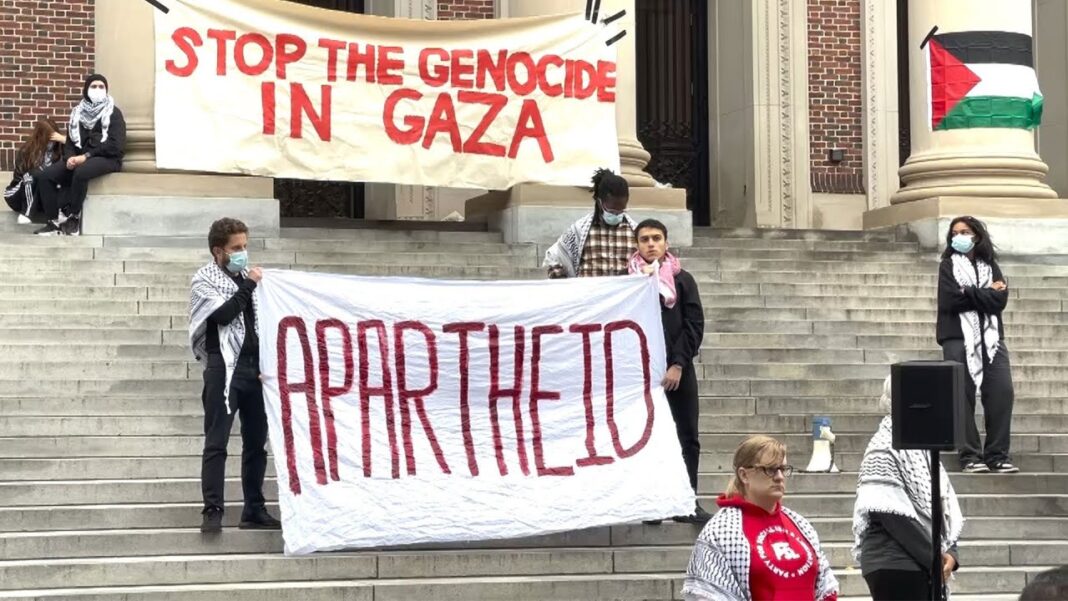The reports recommend reforms across academics, student life, and campus policies following tensions on campus after the start of the Israel–Hamas war in 2023.
Harvard University released two reports on April 29 detailing findings from its presidential task forces formed to address anti-Semitism, anti-Muslim bias, and tensions surrounding the Israel-Hamas war.
The reports—commissioned after the Oct. 7, 2023, Hamas terrorist attack on Israel and subsequent campus protests—found that Jewish, Israeli, Zionist, Muslim, Arab, Palestinian, and pro-Palestinian students all reported feeling marginalized or targeted over their identities and views. Some Jewish students said they hid religious symbols or avoided speaking Hebrew in public, while Muslim and Palestinian students said they felt judged, misrepresented, and unsupported.
“Especially disturbing is the reported willingness of some students to treat each other with disdain rather than sympathy, eager to criticize and ostracize, particularly when afforded the anonymity and distance that social media provides,” Harvard President Alan Garber wrote in a letter to the campus community. “Some students reported being pushed by their peers to the periphery of campus life because of who they are or what they believe, eroding our shared sense of community in the process.”
He pledged that the university “cannot—and will not—abide bigotry” and would work to safeguard free expression while protecting students from harassment.
The task forces issued separate reports with tailored recommendations. The Department of Health and Human Services’ Office for Civil Rights had previously demanded that Harvard turn over the reports by May 2.
The 311-page report by the Task Force on Combating Antisemitism and Anti-Israeli Bias urged Harvard to adopt the International Holocaust Remembrance Alliance’s definition of anti-Semitism, expand Jewish and Israel-related academic programming, standardize incident reporting, and provide new training for students and faculty.
The 222-page Task Force on Combating Anti-Muslim, Anti-Arab, and Anti-Palestinian Bias report recommended defining Islamophobia and related biases in university policies, expanding Palestinian studies, offering better mental health services for affected students, and establishing protections against doxxing and harassment. Both groups emphasized the need for clearer disciplinary processes and stronger free-speech protections.
The reports recommended a wide range of actions, including improving disciplinary processes for harassment, expanding dialogue initiatives, providing better support services, and strengthening policies around protests. Harvard said it has already begun implementing some changes, including clarifying campus protest rules and updating training programs.
By Chase Smith








